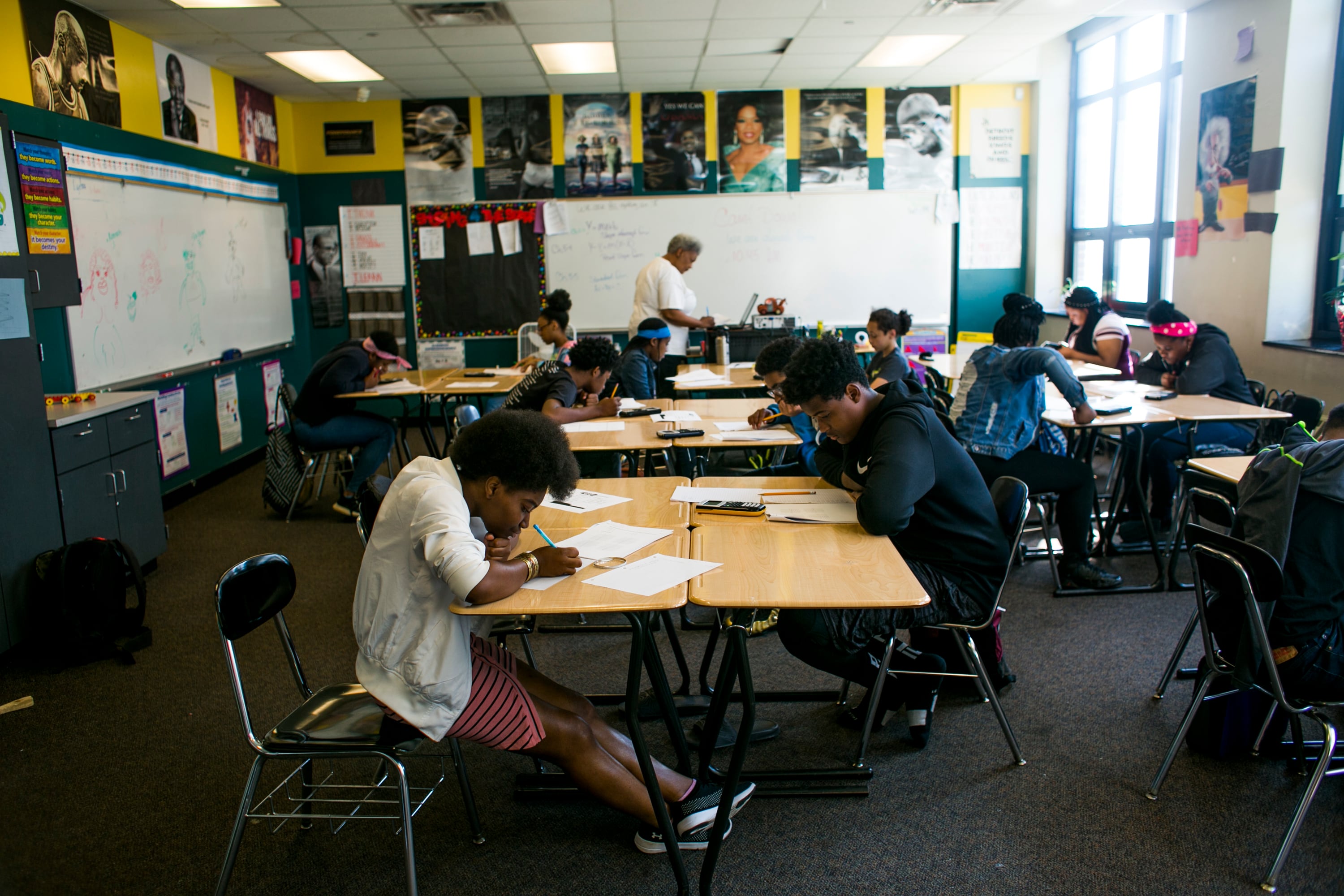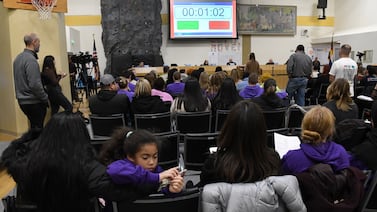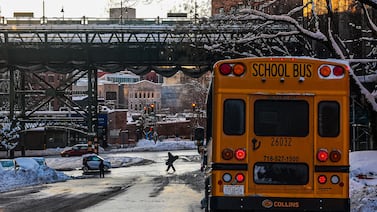Graduation rates in Michigan dipped for the first time in recent years.
The statewide four-year graduation rate was 80.4% for the Class of 2021, a decrease of 1.6 percentage points from the previous year. The state graduation rate is the percent of students graduating who began as freshmen four years earlier.
The numbers come as a timely reminder of the ongoing academic and mental health challenges COVID has placed on students, and the costs of educational turmoil. Without a high school diploma, students face an uphill struggle in the job market.
Those effects have been felt in Michigan and across the country. High school graduation rates dipped in at least 20 states after the first full school year disrupted by the pandemic, especially among students from low-income families.
State Superintendent Michael Rice said in a statement Friday that the graduation rates reflect the pandemic’s disproportionate impact on students of color and economically disadvantaged students.
“While we remain considerably higher at 80.5% than we were a decade ago at 74.3 percent in our four-year graduation rate, we have a particular need to make sure that graduation delayed is not graduation denied and that our students graduate and do so with the requisite knowledge and skills to continue in some form of postsecondary education,” he said.
Michigan’s largest school district, the Detroit Public Schools Community District, saw a drop of 8 percentage points in its four-year graduation rate from the previous year, going from 72.5% for the 2019-20 school year to 64.5% for the 2020-21 school year. The district’s graduation rate has declined every year for the last five years, in part because some of the city’s lowest-performing schools were reincorporated into the district in 2017.
Detroit Superintendent Nikolai Vitti tied the decline to that transition, but also said the pandemic was a big factor.
“Obviously, had it not been for the pandemic, which caused extreme absenteeism and therefore course failures, we would have been higher than 65%,” he said in an email. “This is now our new baseline and we will build from here.”
He said the district is taking steps to help students make up coursework and graduate. Teachers can make extra money by offering extra courses during the day, and after-school courses are being offered to help students make up missed credit.
Statewide, the graduation rate among Black students declined 2.8 percentage points, while American Indian students decreased 4.1 percentage points.
Among students from low-income families, the four-year graduation rate dropped 2.8 percentage points to 68.8%, after having been on a steady increase over the last five years.
The statewide decline is the first during the pandemic: Graduation rates ticked up for the class of 2020, which finished school after just three months of pandemic-influenced education.
Ethan Bakuli is a reporter for Chalkbeat Detroit covering Detroit Public Schools Community District. Contact Ethan at ebakuli@chalkbeat.org.
Koby Levin is a reporter for Chalkbeat Detroit covering K-12 schools and early childhood education. Contact Koby at klevin@Chalkbeat.org.
This story has been corrected to reflect that the decreases in graduation rates were drops in percentage points.






